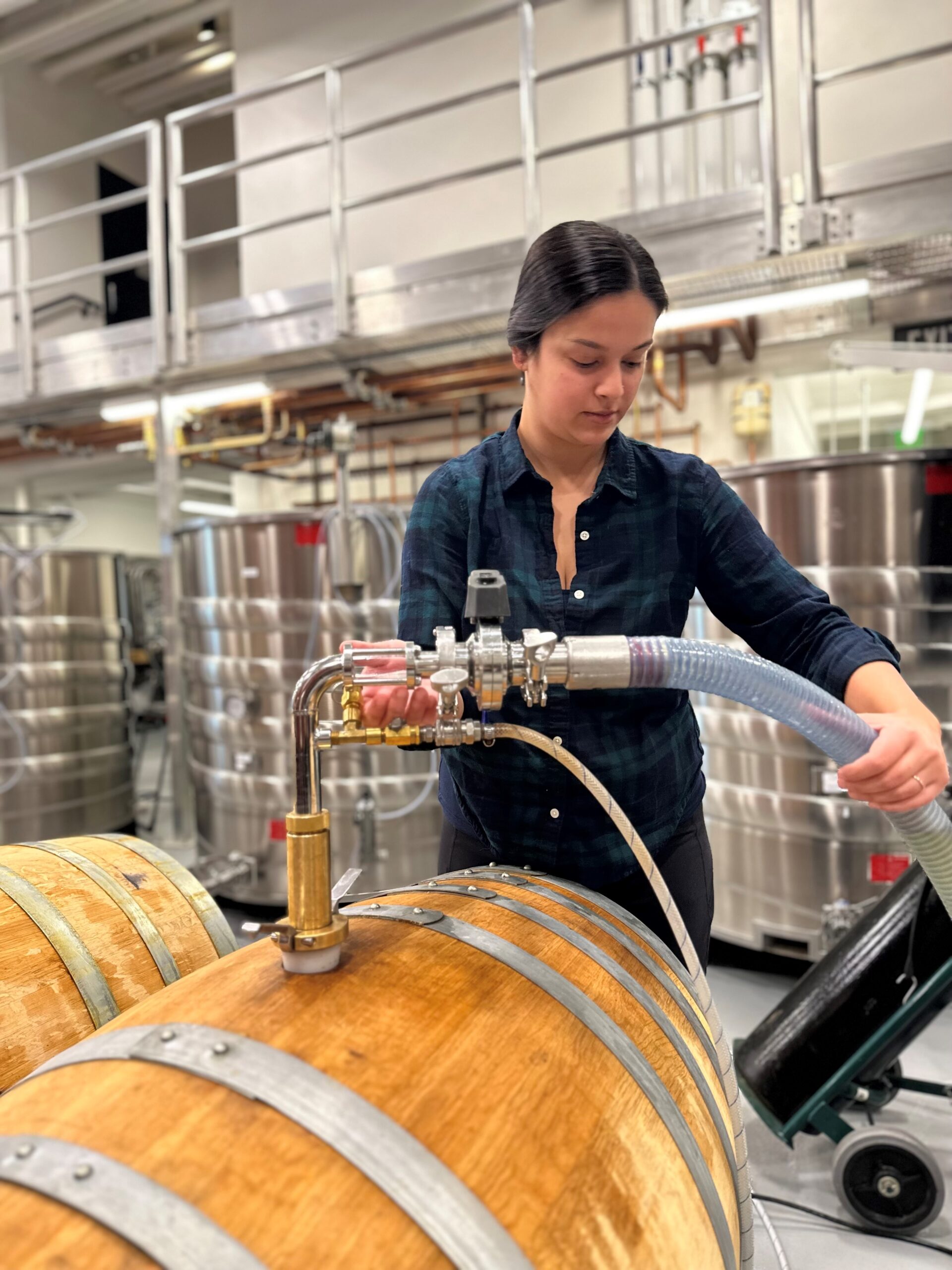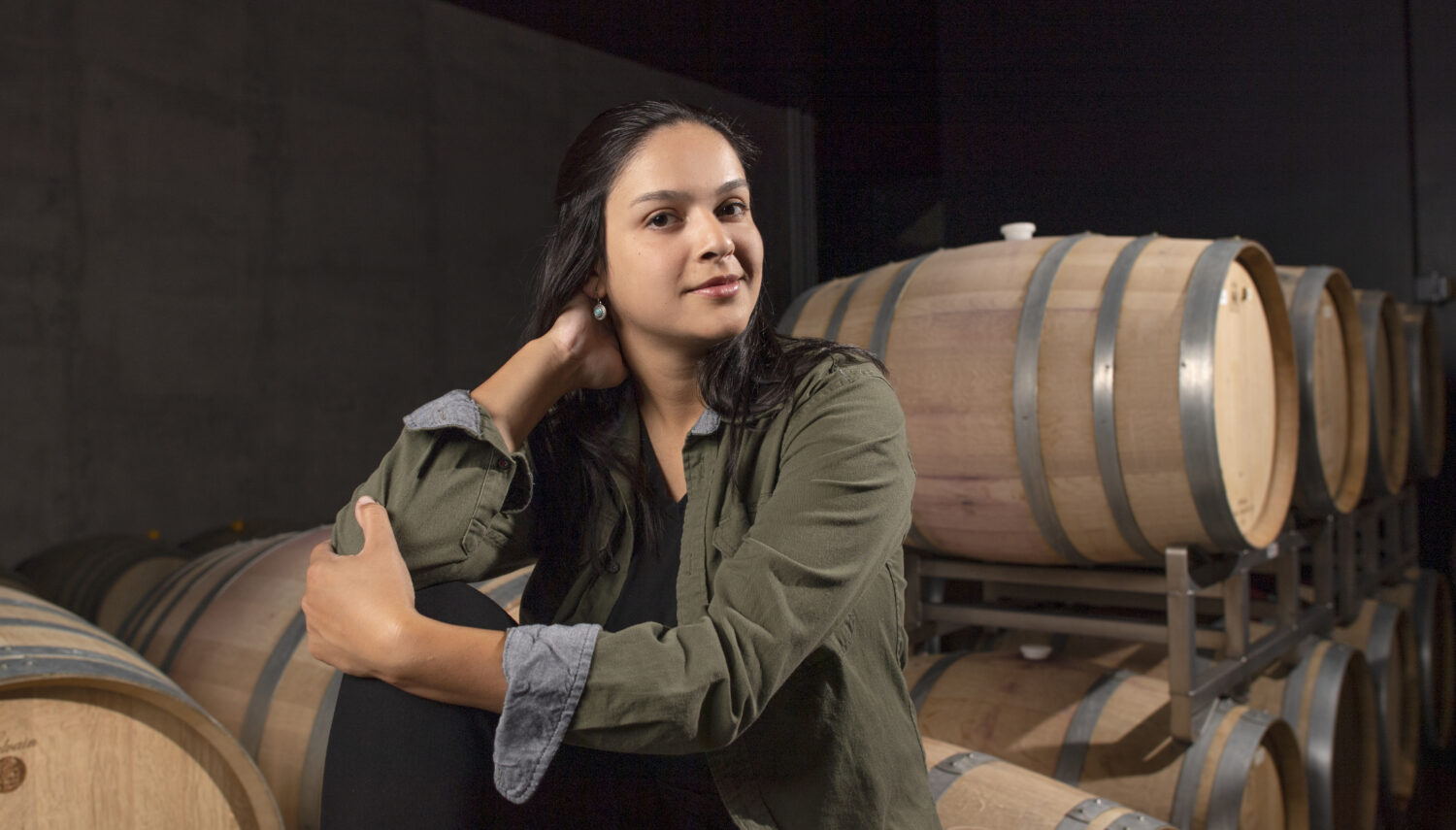Malachi Veal (MV): Can you please update me on some basic information, including your date of graduation from the EV program, current employer and position, social media handles, and preferred contact details?
Devyani Gupta (DG): June 2018, Current position: Head Winemaker & Viticulturist for Valdemar Estates in Walla Walla, @devyaniisabel, facebook.com/guptadi289/
MV: How did you get into wine?
DG: In 2014, I began working for Amavi Cellars shortly after I turned 21, I instantly fell in love with the work that goes into crafting a bottle of wine and wanted to learn more. On that path, I decided to go back to school for winemaking, and enrolled in the WWCC Enology & Viticulture program.
MV: Is there someone in the EV world that you admire, including fellow EV alums?
DG: There are too many to fit in this spotlight! However, to quickly name a few – JJ and Kelly Menozzi at Aluvé, Sadie Drury at North Slope Management, Marcus Rafanelli at LÉcole are the first to come to mind; to me, they exemplify not only excellence in our field, but are also leaders who give back to our wine community.
MV: What’s special to you about working in the wine industry?
DG: I admire the way wine has the capability to bring vastly different people together for the same common goal of great wine. The people you meet in this industry are fascinating. On the day-to-day side, I particularly love the work that goes into winemaking and the way it demands your full presence, not just mentally, but also your senses. Being “present” demands your mind, nose, palate, etc.

MV: What is your favorite part of your job?
DG: My favorite part of my job is teaching others; I get to do this in different capacities, be it in seminars or events with our wine club, or with our harvest team. I love seeing the ah-ha moment when a concept clicks.
MV: What do you think differentiates and excites you about Washington wine?
DG: I think we have a freedom to create that is unmatched. You can plant in unknown territory, try new varieties, anything you dream can be done. In other areas of the world, you have to seek permission to plant new acreage, or even permission to plant certain varieties or clones.
MV: How do you foresee climate change or social issues affecting the local industry in the next few years?
DG: Climate change has been and will continue to be one of our largest battles as an industry. For vineyards, I expect people to experiment with planting to new heights (elevation-wise), with drought-adapted rootstocks, and perhaps some different varieties. Additionally, I see a push to mechanize some of our operations in the vineyard, as intense heat events make it impossible to keep up with the work that needs to be done. In the cellar, I anticipate winemakers adapting some of the yeasts and enzymes they use during fermentation. It is important to remember that climate change does not necessarily mean things will be always warmer, it more means that we will battle more extreme weather events. In 2022, we had blizzard conditions in April, then one of the hottest Augusts on record. As an industry, we will need to work together to combat what a cooler or warmer vintage brings.
MV: What advice can you share with future EV graduates?
DG: Take your second-year internship seriously; don’t just look at the name of the winery and their reputation, think critically about who works there, and will you learn what you hope to and need to learn during your time there? Will you do a little bit of everything, or generally work on the same task every day (e.g. POs or Crush pad)?


Join the Conversation